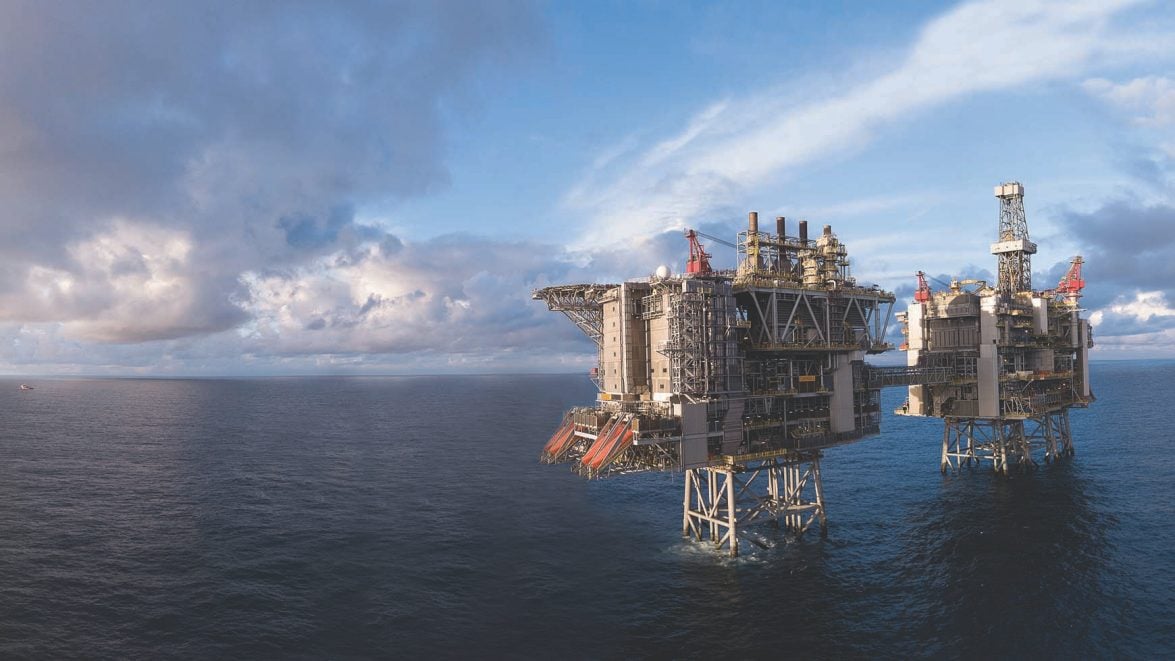British oil company BP is preparing to enter the third phase of development of the massive Clair oil field in the North Sea, with the tightening of carbon capture requirements for the project.
The British company is looking forward to making a decision to develop the third phase of the project, which bears the name “Clear South”, within the next 3 or 6 months, in preparation for making a final investment decision before the end of 2024, according to the specialized Energy Voice platform.
The British oil company BP estimates the size of the reserves of the third phase of the Claire field at 7 billion barrels of oil. That makes it the largest project in Western Europe, according to the specialist energy platform.
The company is currently studying alternative options for constructing the drilling rigs needed for the project, one of which aims to construct a new drilling rig and install it in the existing Clear Ridge facility connected to the project bridge, or to establish an independent platform under the sea.
BP officials tend to build platforms connected to the existing Clare Ridge facility, and rule out the idea of establishing a new integrated facility, according to the company’s managing director in the UK, Doris Reiter.
decision within 6 months
Reiter suggested that the company’s board of directors would decide on the optimal development options for the project within 3 or 6 months, in preparation for making a final investment decision before the end of 2024.
The British company received the green light to develop the third phase of the Claire project, as part of the ongoing exploration activities in the west of the Shetland Islands and in the central North Sea.
These projects aim to ensure that Europe’s energy security commitments are met in parallel with plans to reduce carbon emissions in the oil and gas sectors. However, this formula is criticized by environmentalists and climate advocates who want to quickly phase out fossil fuel activities.
The United Nations said last month that rich countries should completely abandon the use of coal, oil and gas by 2040, to ensure that global carbon neutrality plans are achieved.
Britain incurs $ 125 billion
In 2021, Britain planned to suffice with current oil and gas reserves to cover energy demand until 2030, without the need to discover new fields. However, the repercussions of the Ukrainian war confused all European governments, and forced them to retreat, in one way or another, from the rapid plans to abandon fossil fuels.
And local data released last month showed that the United Kingdom incurred a record amount of more than 100 billion pounds ($ 125 billion) for energy imports during 2022.
(One pound sterling = $1.25).
The British oil company BP adopts a parallel strategy aimed at enhancing oil and gas production to ensure energy security and address supply shortages in Europe, in parallel with investing in energy transition projects.
Parallel strategy
The company’s CEO, Bernard Looney, expressed this equation in February 2023, when he said that their future plan is to invest in the energy transition with the current energy system consisting of oil and gas.
The British company aims to increase its planned investments until 2030, by $ 16 billion, compared to previous plans, to achieve this comprehensive equation between renewable energy sources and fossil fuel sources, according to what was monitored by the specialized energy platform.
And oil and gas companies rely on updating their plans – disturbing to climate supporters – on the support of European governments, which are in crisis due to the energy crisis left by the Russian-Ukrainian war that has erupted since February 2022, and has not subsided until now.
BP says the Ukraine war showed how fragile the current energy supply is around the world. This prompts it to continue producing oil and gas to ensure the security of European supplies in a stable manner and at reasonable prices, without abandoning the long-term carbon neutrality path.
BP more than doubled capital spending on UK projects in 2023, compared to last year’s spending.
agreement with Equinor
BP started producing oil from the Claire project in the British North Sea in 2005, then expanded the project massively through a second phase in 2018, with investments amounting to 5 billion pounds sterling.
The company planned to expand in the third phase in 2020, but it postponed the final investment decision in it, pending settlement on a formulation that guarantees the project’s compatibility with the requirements of reducing emissions in the sector.
The company is preparing to resume phase three plans in 2023, after it signed an agreement with the Norwegian company Equinor and Ithaca Energy, to remove carbon from offshore assets west of the Shetland region through electrification technologies.
This agreement comes within the framework of the British oil company BP’s commitment to remove carbon from North Sea facilities specialized in exploration, drilling, extraction or production.
The highest profit in its history

BP in the North Sea has succeeded in reducing its emissions by 30% in 2022, compared to the level of emissions in 2019, according to the specialized energy platform.
It also plans to establish a hydrogen production center in the city of Aberdeen – the third largest city in Scotland – and is preparing to adopt a final investment decision in it this year, with estimates that its first production will begin in 2024.
The company is investing in pilot projects for offshore wind and other carbon capture and storage projects, but it is not considering a rapid retreat from fossil fuel production projects that contributed to its record profit in 2022.
The company recorded a net profit of 23 billion pounds ($ 28.7 billion) in 2022, the largest profit in its history ever, according to the consolidated financial statements seen by the specialized energy platform.
The profits have rekindled the British company’s and others’ appetite for fossil fuel projects. This prompted it to back down from its previous pledges to reduce oil and gas production by 40% by 2030, and to replace it with lighter pledges of no more than 25%.
related topics..
Also read..

Leave a Reply